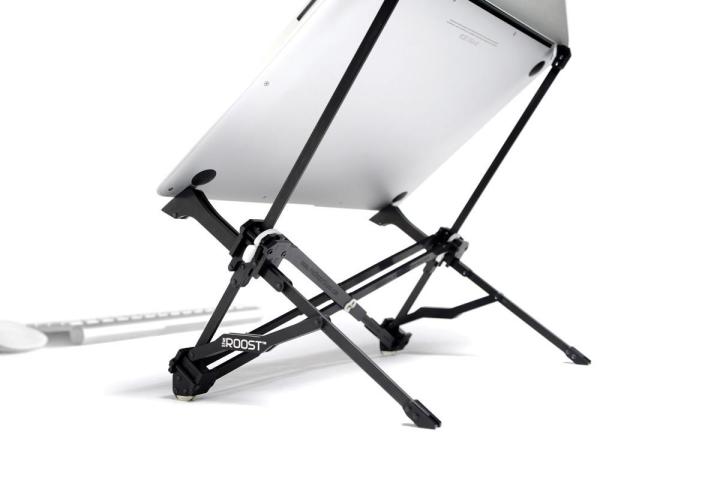
Like anyone with an entrepreneurial mindset, Olander decided to wield his disdain in an attempt to aid himself and others, as well as generate some hard-earned cash in the process. Hence, the Roost was born. According to the company’s Kickstarter, which at the time of this writing has successfully achieved its goal of $475,000 with three days left to pledge, the Roost is “the most effective way to improve posture and help eliminate pain and Repetitive Stress Injuries (RSI) for laptop users.” Using a laptop that isn’t positioned at eye-level can therefore put you at risk for a lifetime of “computer-related injuries and pain”.
This is actually the second Kickstarter for the Roost to arise in the past couple of years. In June 2013, Olander and his team were supported by 2,500 backers and have since shipped over 10,000 Roosts. The original Roost, however, was crafted with a laser-cutter and store-bought parts, while the new and improved Roost will feature a renovation complete with high-performance injection molding.
Like most Kickstarter campaigns, there are numerous rewards in place for anyone who pledges within a certain economic threshold. Backers who pledge $49 or more will actually receive a Roost laptop stand for $30 less than the cost of the product at retail. Meanwhile, backers who pledge $74 or more are eligible to secure an accessory case to protect their Roost in addition to the stand itself. From there, higher reward tiers simply offer greater quantities of the Roost alone.
Anyone interested in essentially pre-purchasing a Roost laptop stand while sparing some cash and supporting a productive new way to promote good posture ought to do so before the campaign expires this coming Monday at 1pm PT. For the complete rundown on the Roost, which launches globally come October 2015, including comprehensive technical specifications, visit its official website.


